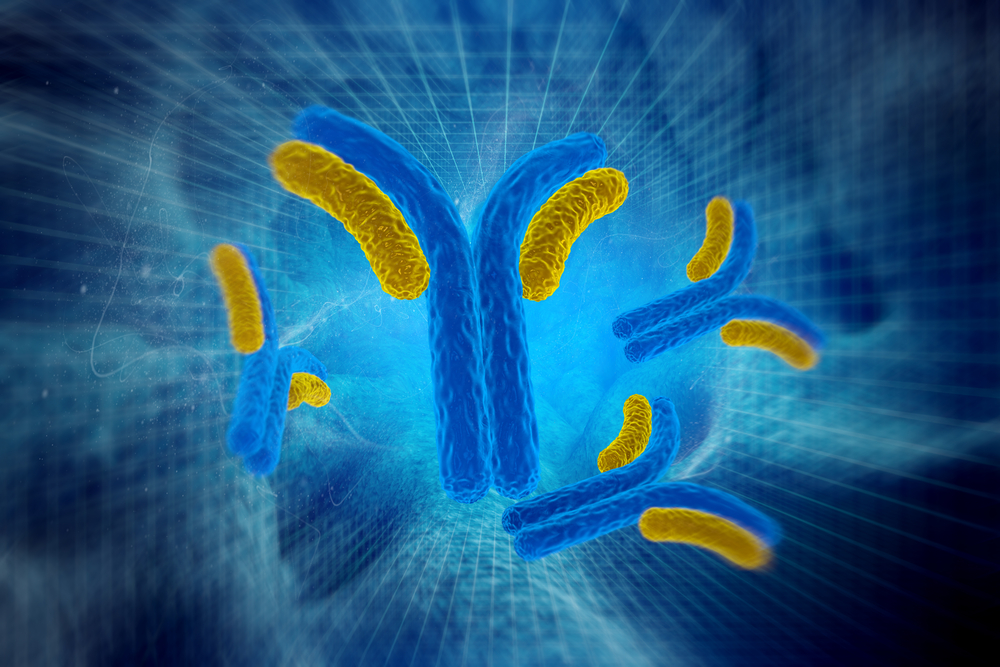Scientists Uncover Key Pathway in Production and Maturity of Anti-Pathogen B-Cells

Researchers have identified a key molecular pathway that drives the maturation of antibody-producing B-cells, capable of weeding out harmful pathogens. The discovery may allow scientists to manipulate antibody responses to create new treatments for autoimmune diseases such as lupus.
The study, “A TRAF-like motif of the inducible costimulator ICOS controls development of germinal center TFHcells via the kinase TBK1,” was published in Nature Immunology.
Follicular helper T-cells (Tfh cells) are key cells for the maturation and proliferation of B-cells, which produce highly specific antibodies against invading pathogens. Moreover, Tfh cells inhibit the survival of those B-cells that are potentially harmful.
The Inducible T cell Co-Stimulator (ICOS), a key signaling molecule, is essential for Tfh cells’ function, promoting their maturation which, in turn, activates B-cells that can migrate and rapidly proliferate. Tfh, under the stimulation of ICOS, can then select those cells that produce highly specific antibodies. Until now, however, the underlying mechanisms and molecular details of the ICOS were unknown.
“Tfh cells have recently been recognized as important players in the immune system, and we now know they are essential for almost all antibody responses,” Professor Shane Crotty, with the La Jolla Institute for Allergy and Immunology, said in a news release. “Tfh cells control the whole process of generating high affinity antibodies, and ICOS is a receptor molecule strongly required for Tfh cells to work. Understand ICOS better, and you can make more Tfh when needed, and block it when not needed.”
Researchers discovered that ICOS is associated with an enzyme called TANK-binding kinase 1 (TBK1), which activates certain genes in Tfh cells and drives the process of high-affinity antibody production and maturation. Furthermore, ICOS was found to recruit TBK1 and, if this association is disrupted, Tfh function and, consequently, antibody production is greatly impaired.
“We were looking to find out a specific signaling pathway that impacted ICOS,” said study leader Dr Kok-Fai Kong. “There is a family of such checkpoint molecules like ICOS, but ICOS has a capability that is not shared with other checkpoint molecules. Its ability to drive antibody differentiation is found only in ICOS, and not in other family members. The connection between ICOS and TBK1 provides important clues to this mystery.”
Researchers believe this new finding might be an important target in the development of vaccines and therapeutic strategies for autoimmune diseases, from lupus to multiple sclerosis and rheumatoid arthritis, where harmful or excessive antibodies attack the host body.






